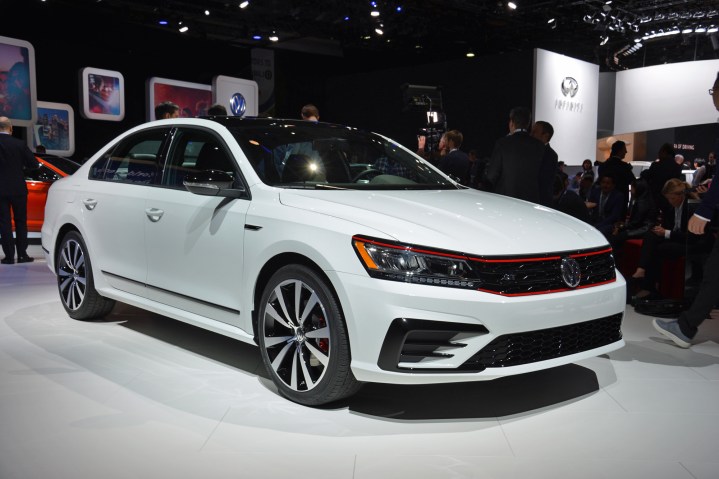
SUVs and crossovers represented approximately half of Volkswagen’s American sales in March. That is hardly surprising; it reflects the direction the entire new car market is moving in. The German firm wants to launch more high-riding models in the coming years, but it’s also allocating a significant amount of resources into building a better, more desirable Passat for the North American market. The model will make its debut next year.
“The Passat is in a very competitive segment, and the segment is not doing very well right now. But we absolutely want to stay a full-line manufacturer so the Passat will get a great successor. It will be great-looking, and most likely more Americanized [than the current model]. We are very much looking forward to it. We see higher volume opportunities for this Passat over its predecessor,” Hinrich Woebcken, the head of Volkswagen’s North American division, told Digital Trends.
The new Passat will join the much-improved 2019 Jetta in showrooms. That is as big as Volkswagen’s sedan lineup will get, at least in the short-term future. Looking further ahead, we will see a toned-down version of the Atlas Cross Sport concept unveiled recently in New York. Think of it as the brand’s answer to the Jeep Grand Cherokee. The Atlas Tanoak concept that made waves when it broke cover alongside the Cross Sport in the Big Apple hasn’t received the proverbial green light for production yet, a spokesperson for the company told Digital Trends. Building a business case for a unibody, lifestyle-oriented pickup truck is easier said than done, even in a truck-loving market like the United States.
Woebcken thinks the shift toward SUVs and crossovers is a permanent one. “In former times, when gas prices went up people went back to sedans. We believe this will not happen anymore,” he explained. That’s because modern crossovers get almost the same gas mileage as a comparably sized car, and because motorists have gotten used to sitting up high in a car. With that in mind, he told us an SUV positioned below the Tiguan could arrive, too. It would replace the Tiguan Limited.
“We are investigating a second SUV below the Tiguan. The compact segment is so huge that we believe there is space for a second model,” he revealed. However, don’t expect the company to go much smaller and venture into sub-compact crossover territory like some of its rivals (including Toyota and Honda) have done. “The market [for sub-compact crossovers] is too small,” he pointed out.
Volkswagen hasn’t revealed precisely when the next-generation Passat will make its debut. We could get our first glimpse of it at next year’s edition of the Detroit auto show, or we might have to wait until the 2019 New York auto show. Either way, it won’t land in showrooms until the 2020 model year, meaning the current model (pictured) will stick around for at least one additional model year. It’s not an SUV, but it remains a significant part of the company’s growth plans.
“We have a good chance to be one of the strongest-growing brands in the country in the coming years,” Woebcken predicted. “Coming out of a niche position, we have more potential to grow than our competitors — if we do everything right, which we intend to do.”




